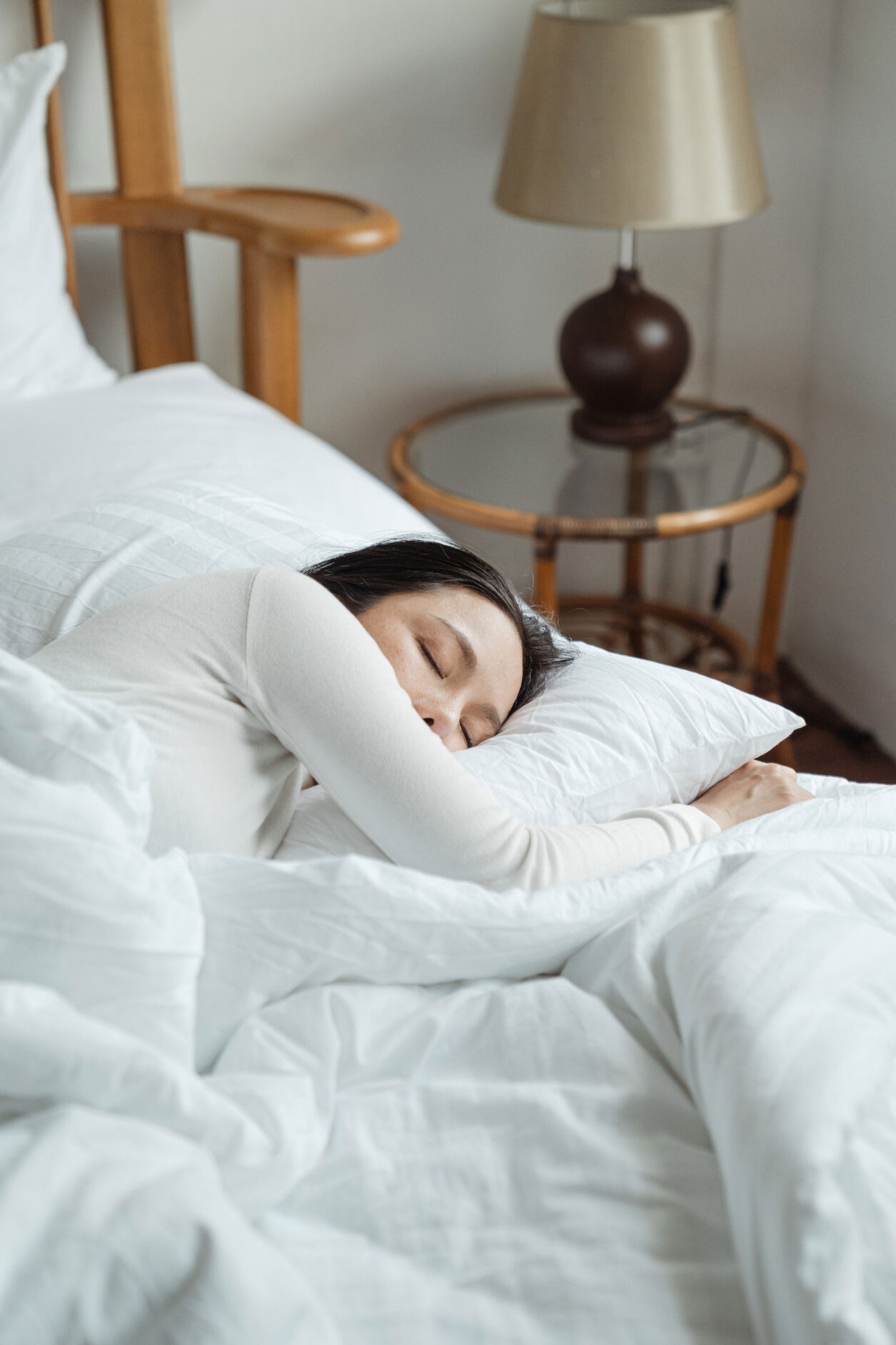Getting sound sleep is crucial for our physical, mental, and emotional health, yet millions of Americans struggle with sleep problems.
Eat for better sleep:
- Lighten Up what you eat, especially in the evening. Big dinners make you temporarily sleepy but may prolong digestion, which can interfere with quality sleep. Eat larger meals earlier in the day and target a dinner of 500 calories or less. Lighten up your food choices throughout the day too. Research shows that eating foods high in saturated fat and sugar and low in fiber throughout the day is linked with lighter, less restorative sleep.
- Five Smart Sleep Foods – If you are going to snack at night, choose foods that contain melatonin, serotonin, and tryptophan and those high in antioxidants, such as:
- Bananas contain magnesium, tryptophan, vitamin B6, carbs, and potassium that promote sleep.
- Berries, including blueberries, raspberries, and blackberries, are high in sleep-boosting antioxidants.
- Herbal teas such as chamomile and passionflower are rich in flavonoid antioxidants.
- Lean proteins
- Almonds and walnuts boost serotonin for better sleep.
- Watch Your Sugar Intake – Lowering your intake of added sugar has been linked with better sleep, and is better for your health overall. Too much sugar in your diet has a direct effect on blood sugar levels and can impact energy levels throughout the day. Inconsistent blood sugar can also affect sleep. Limit added sugar to 24 grams or less per day.
- Lay Off Wine Before Bedtime – While a glass of red wine can make you feel tired, science tells us that it disrupts the quality of your sleep. Your brain produces a stimulant to counterbalance the chemicals it produces after drinking alcohol. This is what causes you to wake up several hours after drinking at night, and makes you feel less rested the next day.
- Don’t Eat After 8 p.m. –When sleeping, our digestion naturally slows down as our metabolism enters a resting state. Trying to sleep after snacking can lead to symptoms such as indigestion, acid reflux and heartburn AND disrupt sound sleep. Plus, late at night is when people make their worst (unhealthiest and most fattening) food choices of the day. Choosing a time earlier in the evening (whether that be 6, 7, or 8) may also be a way to naturally eat less and lose weight.
Certified Nutritionist Amy Fox is on a mission to educate everyone about how our food choices affect our health and happiness. Amy holds a Master of Science in Food and Nutrition Sciences and is a Certified Functional Food Professional. She is principal consultant with TiER1 Performance Solutions and founder of Food and Mood Lab. Learn more at foodandmoodlab.com.




















